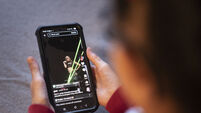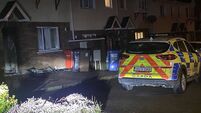Study: Artificial light 'disrupting sleep'
Electric lights, including those illuminating laptop computers, smartphones and tablets, often play a key role in causing people to sleep badly, a leading expert has said.
Artificial lights disrupt the body’s natural rhythm, affect chemicals in the brain and drive people to use stimulants like caffeine to stay awake longer, according to Harvard academic Professor Charles Czeisler.













